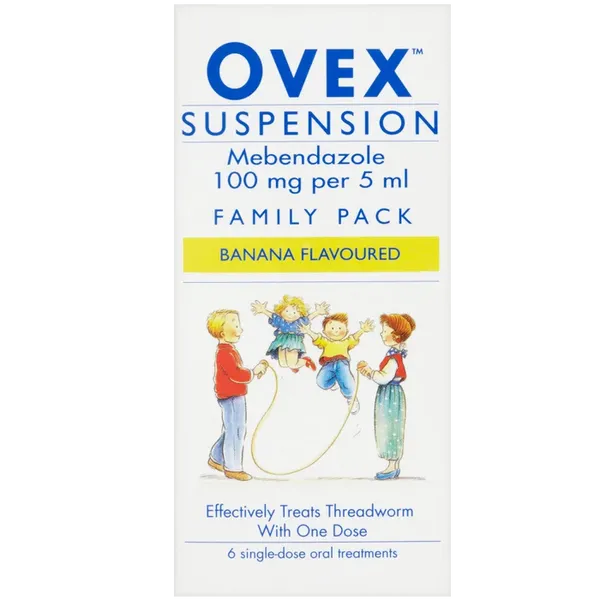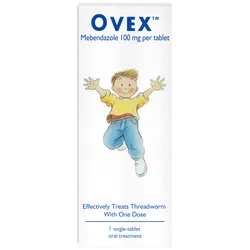Before taking this medicine
This medicine is suitable for most adults and children, but a few
people should not use it. If you are in any doubt, talk to your doctor
or pharmacist.
Do not use this medicine…
■ If you have ever had a bad reaction to any of the ingredients.
■ If you are pregnant or think you are pregnant.
If any of these apply to you, get advice from a doctor or pharmacist
without using Ovex Suspension
Talk to your doctor or pharmacist...
■ If you have been told by your doctor that you have an intolerance
to some sugars.
■ If you are taking any other medicines, including:
■ Metronidazole (a drug used to treat bacterial and protozoan
infections) as a serious skin reaction can rarely occur.
■ Cimetidine (used to treat excess stomach acidity).
If you are not sure about any of the medicines you are taking, show the bottle or pack to your pharmacist. If any of the bullet points apply to you now or in the past, talk to a doctor or pharmacist.
If you are pregnant or breast-feeding
Do not take this medicine if you are pregnant, or think you might be pregnant. Ask your doctor or pharmacist for advice before taking this medicine if you are breast-feeding.
Special warnings about this medicine
Since threadworms can spread very easily, it is strongly recommended that all the family (except pregnant, breast-feeding women or children under 2 years) are treated at the same time and that suitable hygiene precautions are followed to prevent re-infection.
Ovex Suspension can have side-effects, like all medicines, although these don’t affect everyone and are usually mild. If you experience any of the following, stop using the medicine and seek immediate medical help:
Very rarely: (fewer than 1 in 10,000 people are affected)
■ Convulsions (seizures/fits).
■ Allergic reactions including unexplained wheezing, shortness of breath, sudden swelling of your face or throat, and hives (also known as ‘nettle rash’ or ‘urticaria’).
■ Skin rashes (which may be severe and include blistering or peeling of
the skin) and itching, and may be accompanied by a high temperature.
Commonly: (fewer than 1 in 10 people are affected)
■ Stomach pain
Uncommonly: (fewer than 1 in 100 people are affected)
■ Stomach discomfort
■ Diarrhoea
■ Wind















